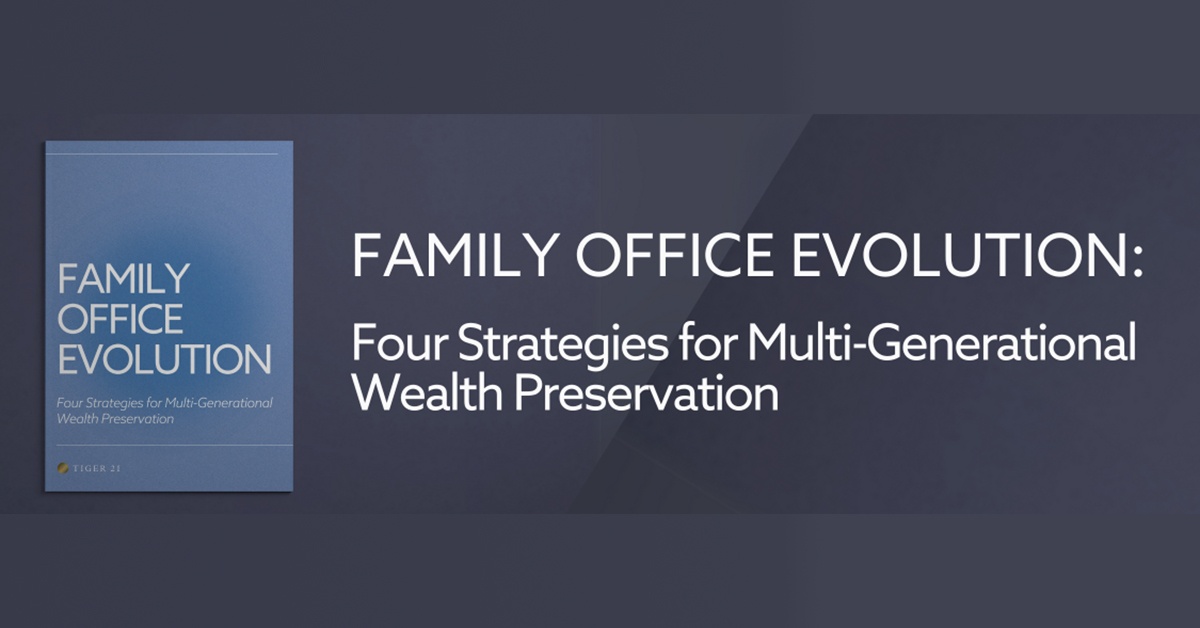Four Questions to Ask Before Passing an Enterprise to the Next Generation

Recommendations for Creating Successful Family Business Succession Plans
As a longtime advisor who helps business owners and their families craft plans to put companies or family offices in the hands of successors, I am often approached with questions about transitioning these entities to one or more of their adult children. Their goal is always the same: Find the right person to lead without forcing anyone to do something they don’t want to do, and avoid damaging relationships or threatening the success of their organizations while also having their children put some skin in the game.
For simplicity, Generation 1 (“Gen 1”) refers to one or more current owners/equity holders, Generation 2 (“Gen 2”) to one or more successors, and “child” to the adult child or children from Gen 2. “Enterprise” is a term used to encompass any entity (e.g., business, family office, foundation) that provides a good, service, or funds to others.
The foundation for any family business succession plan is Gen 1’s goals and, once set, there are four questions Gen 1 should contemplate before deciding which member of Gen 2 to put into the CEO’s chair.
Question 1: Does the child want to be part of the enterprise?
Owners sometimes tell me that their children would be “crazy” to pass on the “amazing opportunity” to take over their enterprise. My first question is always: “How do you know?” Running the enterprise may not be as meaningful to them as it was to you.
- Ownership is not easy, nor is it for everyone. It is a financial, emotional, and lifelong commitment many people are not willing to make.
- As an individual or as a group, Gen 2’s sense of obligation can be stronger than their interest.
- Does a child want to work with their siblings or other family members?
- There is no shame in declining the opportunity to become the future leader of an enterprise.
The only way to know whether a potential Gen 2 successor truly wants to lead an enterprise is to invite them to engage in a discussion. Invitations must be specific because successors need to know what they’re committing to.
Question 2: Is there a fit among the G2 child, the enterprise, and the family?
Identifying a G2 family business successor who is willing and motivated to assume leadership is the first step. The second is to do a bit of matchmaking: Is the G2 child capable of running an enterprise that is likely far more complex and valuable than it was when G1 stepped into ownership?
- Has the G2 child demonstrated the qualities of entrepreneurship that they will need to be successful?
- Is the G2 child capable of learning how to do what G1 does to lead a successful business?
- Do the members of G1 and G2 agree that the G2 child is the best successor choice?
A family business successor whose dream and intent is to assume ownership may be unable to handle the challenge. They may not even realize that until after committing to ownership. Always having a Plan B is key.
Question 3: Does the G2 child’s timeframe for ownership match that of G1?
It’s important for G1’s timetable to align with G2’s because no one wants to leave an enterprise in the hands of an unprepared successor, and only foolish or uninformed successors want to lead before they are prepared.
- Elements of a G1’s timetable include whether they are ready to step away from active involvement in their companies and when they want to begin the next phase of their lives. As individuals live longer, it’s not uncommon for G1s to want to remain active into their 70s.
- Elements of a G2’s timetable include how well prepared they are to lead, and if they have the patience to wait until G1 is ready to step aside.
- It is not unusual for a transfer of leadership to take several years (typically three to ten) because it involves a sequence of events or stages.
Question 4: Is G1 capable of teaching and mentoring the G2 successor?
G1s are doers; they decide, act, and lead decisively. They know their enterprises so intimately that they rarely give thought to how they do what they do. Teaching and mentoring, on the other hand, requires breaking down complex tasks into components, creating an organized curriculum, allowing G2 successors to make mistakes, and stepping aside to let them lead.
- Are you ready to embrace a new kind of success? One that could be as meaningful as running your enterprise?
- As your successor learns to lead, miscommunication and misunderstandings are almost inevitable. When that happens, can you remain cool and maintain your relationship with your child?
- We use three rules of engagement to keep lines of communication open:
1) Always assume the other party has the best of intent;
2) Be honest and never accusatory; and
3) Be playful. Don’t leave your sense of humor at home.
It’s a challenge to transition leadership of an enterprise from Gen 1 to Gen 2, and some families decide that they prefer that a successor should not be a family member. Some families determine that adding a business relationship to a family relationship (e.g., father / daughter becomes CEO / COO) is too risky because family ties are irreplaceable. However, CEOs are.
Other families take on the challenge. They have the exploratory conversations — often with the help of professional facilitators — necessary to separate what everyone involved wants from what they feel obligated to do. Transitions from Gen 1 to Gen 2 are complex, yet they are possible through thoughtful planning, imagination, and grit.
About Elizabeth Ledoux
Elizabeth Ledoux is the founder of The Transition Strategists and serves as a Denver Chair for TIGER 21, the premier peer membership organization for high-net-worth entrepreneurs, investors, and executives. She is a thought leader and speaker on the topics of succession planning, navigating transitions for companies and leaders, family business, strategic growth, and the business journey. Elizabeth is the author of three books for business owners and entrepreneurs including her latest, It’s A Journey – The MUST-HAVE Roadmap to Successful Succession Planning.
About TIGER 21
TIGER 21 is an exclusive global community of ultra-high-net-worth entrepreneurs, investors, and executives.
Explore the TIGER 21 Member ExperienceMember Insight Reports










